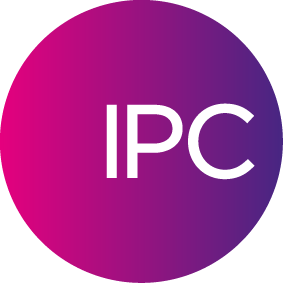The financial markets continue to seek more flexible, scalable and cost-effective solutions for their business. In doing so, they are taking a closer look at cloud. Cloud-based services are nothing new. In fact, some date cloud-enabled infrastructures to the 1970s. But certainly financial institutions are becoming more and more accepting of cloud delivery models for many applications and solutions. As a result, they are now assessing new options for needs that have – historically – been managed on premise by in-house IT professionals.
When it comes to communications solutions, firms seek the advantages of security, reliability and compliance as they embrace cloud-based models. Data sovereignty and control are critically important. Firms are looking for greater flexibility, reduced risk – especially given today’s changing regulatory environment – and ways to lower infrastructure costs.
As cloud servicing models become the norm within the financial markets community, there are many variables to consider in choosing the right solution and delivery model:
- Access to the Community – do you have access to all your business counterparties; a ready-made ecosystem of financial market participants? A top provider should offer value in being connected to a vast community of network participants.
- Customized Applications – will your cloud communication services include cost-effective, workflow-based soft client capabilities that speed up retrieval or usage of key data? Can your provider offer access from anywhere whether that be physical endpoints or directly from a mobile user’s device? Will your cloud-based services be able to integrate with workflow applications?
- Security and Compliance – perhaps most important is the consideration of whether access to your information and community is through a dedicated, secure network versus use of a public cloud where security risks may be higher. A secure network, a secure private cloud with authenticated users and traffic flow built with multiple layers to deliver data protection and traceability of data is what firms want and need. For compliance, users of cloud-based service must be able to address in-country, regional and international regulations. Can the provider ensure that data in a country or region is only accessible by users and administrators in that country or region?
- Enterprise-level Global Support – is the provider’s service model focused exclusively on financial services? In our industry, service response time is essential to one’s revenue-generating ability. A Communications-as a-Service provider should offer a single point of contact for customer care when issues arise. Does the provider have guaranteed service level agreements (SLAs)? After all, you’re considering cloud-enabled services to make your infrastructure and operations more efficient; not more complex. Having 24x7x365 follow-the-sun and in-country support is essential for meeting regulatory requirements. Also, if equipment is owned and managed by the provider this usually increases their ability to resolve issues quickly.
- Flexibility and Self-Service – self-service tools are an important capability to give you and your firm the flexibility to scale and service your own communications environment on demand. These will enable you to react quickly to changes and achieve more value for your firm.
- Migration and Seamless Integration – how helpful will the provider be in migrating your firm from its current communications model to communications-as-a-service? Bridging to a new infrastructure smoothly is critical to your ongoing operations. You’ll also want your cloud-based communications provider to use industry standard technology to facilitate a seamless integration into your organization and its legacy systems.
- Predictable Costs – again, you’re looking for efficiencies; not surprises. User-based subscription models with pay-as-you-go pricing enable you to predict and control your communication costs for cloud communication services. This gives you the flexibility to adjust costs as your business and needs change so you are not overpaying for underutilized communications infrastructure.
There are clear benefits for financial institutions now making the move to a cloud-enabled organization. But the greatest advantages will be realized and business value more quickly derived if the firm is working with a one-stop provider of cloud-based services able to satisfy these seven key considerations. In this manner, your provider will help enhance communications and collaboration by delivering endpoints, applications and integrations to drive efficiency and ease operational pressures – and at the same time drive your satisfaction with having embraced the cloud.

